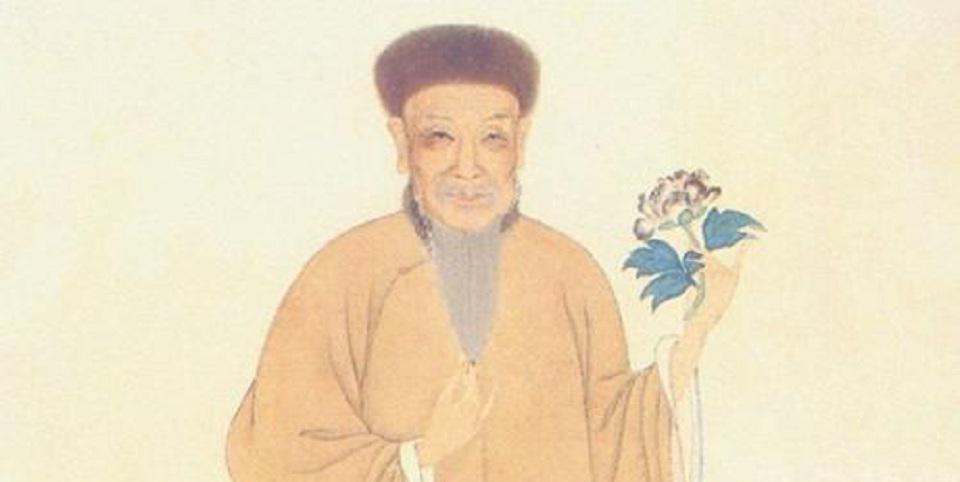On December 7, 1798, the famous poet and critic of the Qing Dynasty, Yuan Ming, passed away. "Mingyue should know me when she has feelings, and see each other in other places every year." Yuan Ming's poetry is not well known, and his career as an official is bumpy, but his other characteristic, the foodie (foodie), is widely circulated.

Famous gourmets in history, Su Dongpo in the Song Dynasty and Yuan Mei in the Qing Dynasty. Yuan Mei is a more successful foodie than Su Dongpo. Su Dongpo is living his life of depreciation and displacement into a China on the tip of his tongue, seeking pleasure in suffering. But Yuan Ming is different, he has no intention of career, specially resigned as a foodie, not only that, he carefully ran Suiyuan, published a best-selling book - "Suiyuan Food List", profitable and named, and then can collect more menus, so that the cycle, it has achieved his world-famous "food empire".
Among ancient gourmets, the love of tea was common. Su Shi wrote nearly a hundred poems in his lifetime, and he was a lifelong tea lover. Yuan Ming is not inferior, and has written "Tea and Wine List" to let the world understand how high-end gourmets view tea.
"If you want to cure tea, first hide the water." - The water used to make tea is very important.
"When the water is new, it tastes spicy, and when it is old, it tastes sweet." ——The newly taken rainwater and snow water needs to be left to be sweet.
"When cooking, use a martial fire, use a piercing jar, and when it is rolled, it will be soaked, and if it is rolled for a long time, the water taste will become worse." ——Boiling water with a martial fire, water can be brewed as soon as it bubbles, it is not advisable to boil it repeatedly.
"As soon as I entered the eunuch field, I ate boiled tea, and its bitterness was like medicine, and its color was like blood." This is but people with fat intestines and brains eat betel nut method also. Vulgar! Now the way the officials and eunuchs drink tea is too vulgar, they should learn the tea affairs in the garden, and the tea is expensive and elegant.
During the Qing Dynasty, classical tea affairs developed to the peak in the hands of scholars. In addition to professional critics such as Yuan Ming, novels such as "Dream of the Red Chamber", "Mirror Flower Edge", "Liaozhai Zhiyi", "Ru lin waishi" and other novels have descriptions of tea events, "Ru Lin Wai Shi" has nearly 300 descriptions of tea matters, and the daily life of the nobles depicted in "Dream of the Red Chamber", sencha, tea cooking, tea festivals, tea gifts, hospitality, tea tasting and other tea activities can be described everywhere.
In addition to tea, Yuan Mei also commented on several teas, Wuyi tea - Qingfen, tongue has afterglow, after a cup, try one or two cups, let people relax and calm, pleasant; Longjing tea - Hangzhou camellia, everywhere is clear; Changzhou Yangxian tea and Dongting Junshan tea and Longjing as if; in addition, Liu'an Gua tablets, Junshan silver needles, Huangshan Maojian, Huoshan plum slices, Anhua black tea can also be drunk.
China's six major teas show green tea, yellow tea, black tea, and oolong tea under Yuan Ming's pen, and black tea and white tea are missing. For black tea that is more mellow than oolong tea, Yuan Ming, who has a light taste and dislikes oolong tea in the early years, is "as bitter as drinking medicine".
Because of its rich taste and bright red soup, black tea has been greatly welcomed once it has been introduced, and has also been favored by Europeans, becoming the largest tea exported in the Qing Dynasty. At that time, the main stage of black tea was not in China but in Europe, from Princess Catherine's first acquaintance with black tea to the popular world of English afternoon tea, black tea has always played the protagonist of the world's tea, black tea is the most inclusive and popular tea.
The earliest time of black tea being sold overseas can be traced back to the end of the Ming Dynasty, and in 1610, the Dutch shipped black tea produced in Fujian to Europe and began to circulate in the upper echelons of various countries. By the 18th century, black tea began to become popular in Britain, and derivative works related to black tea gradually spread in various fields in Britain, resulting in The British black tea culture. This period of time is also the time when the light of Yuan Ming's life blooms.
As a gourmet, Yuan Ming's brilliance is not only in taste and commentary, but also in invention. He also talked about a lot of tea foods in the book "Suiyuan Food List", which is quite distinctive. There is a kind of noodle tea, "boiling coarse tea juice, stir-fried noodles mixed in, adding tahini sauce can also be added, adding milk can also be added, slightly add a pinch of salt, no milk can also add soufflé"; there is also a kind of "tea leg", is made of tea smoked ham, the meat is red, the taste is fresh and with the fragrance of tea.
Today, 223 years later, Xinxi has the honor to lead you to a rough acquaintance with this "food internet celebrity" Yuan Ming, in the course of his eighty-two years of life, there are nearly fifty years of leisurely wandering landscapes, dedicated to poetry creation and food search, it can be said that Yuan Ming is a very transparent wisdom, enviable.